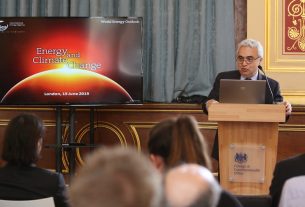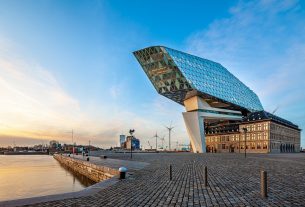The Netherlands – The Ministry of Infrastructure and Water Management in the Netherlands has announced a substantial allocation of €140 million over the next few years to support the development of shore power plants in sea ports.
An additional €40 million will come from the climate fund, bringing the total investment to €180 million. The implementation of shore power infrastructure will allow moored vessels to “plug in,” eliminating the need for polluting diesel generators and reducing noise pollution.
Public-private agreements
Minister Mark Harbers of Infrastructure and Water Management signed a letter of intent with the Branch Organisation for Seaports (BOZ), outlining public-private agreements for the roll-out of shore-based power. This move aligns with the forthcoming Alternative Fuels Infrastructure Regulation (AFIR), which will require European ports to provide shore power to designated AFIR vessels starting in 2030. AFIR vessels include container ships, cruise ships, passenger ships, and combined passenger and cargo ships with a gross tonnage (GT) of 5,000 or more. These larger vessels consume substantial amounts of energy while docked.
Importance of investments
Minister Harbers emphasized the importance of the maritime sector’s contribution to meeting climate targets and acknowledged the significant investments required. The subsidy scheme aims to support the sector and encourage the installation of shore power, leading to environmental gains, reduced noise from generators on moored vessels, and potential opportunities for port development and new climate projects.
The allocated funds primarily target terminals where AFIR vessels dock. However, other shore power projects in maritime shipping will also become eligible for subsidies. According to calculations by the BOZ, approximately 270 megawatts of shore power capacity will need to be installed in ports to meet the upcoming obligation, requiring an investment exceeding €300 million. The BOZ estimates that this initiative could lead to an annual reduction of over 220 kilotonnes of CO2, equivalent to disconnecting around 75,000 households from the gas grid, and a reduction of 2.5 kilotonnes of NOx. If shore power is extended to vessels not covered by the obligation, the potential environmental benefits would be even greater.
Reducing emissions
The introduction of shore power facilities will not only bring environmental advantages and reduce noise pollution but may also create space for climate projects in the ports by reducing nitrogen emissions.
The Ministry of Infrastructure and Water Management, together with the five major sea ports of Rotterdam, Amsterdam, Groningen, Moerdijk, and North Sea Port (Vlissingen, Terneuzen, and Ghent), is collaborating on the implementation of shore power infrastructure in their respective ports.




